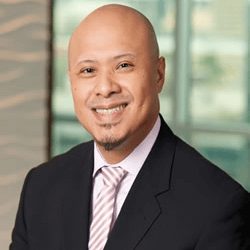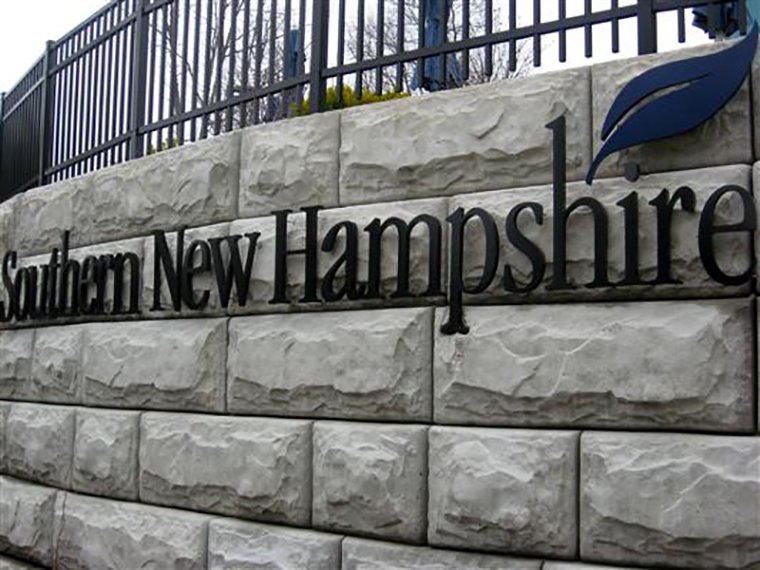Dr. Gregory Fowler is the Chief Academic Officer for the College of Online and Continuing Education at Southern New Hampshire University, where he oversees the faculty and degree programs for more than 70,000 online students and as well as regional centers in New Hampshire and Maine. He has been awarded two Fulbright grants, to Belgium and Germany, where he also keynoted a number of workshops and seminars for the Department of State on American culture and events.
Prior to his current position, Dr. Fowler was Vice President of Academic Affairs at Hesser College and held a number of academic positions at Western Governors University, including Associate Provost of Student Learning and Program Development and Dean of Liberal Arts. He has taught at the Penn State University campus in Erie, PA, and the John F. Kennedy Institute for North American Studies at Free University-Berlin, Germany. He worked at the National Endowment for the Humanities as a Specialist in Outreach and Media Relations and later as Coordinator for the Summer Fellows Program.
Dr. Fowler received his Ph.D. from SUNY-Buffalo, an MBA from Western Governors University, a Master’s degree from George Mason University, and an undergraduate degree from Morehouse College. He was a Charles A Dana Scholar at Duke University and has published articles in national journals in the U.S., Canada, and Germany.
How did you get started in your career as a Provost?
Well first, my official title is Chief Academic Officer. The work of a chief academic officer requires a broad awareness of not just what is going on administratively and academically at an institution of higher education, but the world of scholarship and inquiry at large. To that end, I have been immersed in academia as a career since I left college. My work at the National Endowment for the Humanities taught me first about outreach and engaging various constituencies whose voices were not generally the loudest in a room and later about how to engage the media, governmental agencies, and other stakeholders in issues that can often be complex and controversial.
My time as a college professor gave me insights into the dynamics of classroom teaching and the concerns of faculty when dealing with administration and my time as a Fulbright scholar in Berlin in (2002) and in Brussels (2007) broadened my view of educational issues and networking to the international stage. I went to Western Governors University because the president there inspired me at a time when I had decided that I wanted to have a larger impact beyond the classroom, reminding me that there were some fundamental ways that I believed education could be re-thought to be even more relevant to a different type of student.
It was an opportunity to get involved just as the nation’s first wholly competency-based university was emerging on the national scene. Helping to build that allowed me to implement many of the ideas I had about what the next evolutionary stage of education would be. There I went from Dean of Liberal Arts to Associate Provost over six years and from there I was offered my first job as Vice President of Academic Affairs.
What makes your appointment at SNHU different from your previous leadership positions?
In many ways SNHU is a microcosm of the larger national conversation about education. There is a traditional campus—almost a century old with more than 3,000 students—that is exactly what you would expect a New England college to be—dorms, clubs, sports teams, and professors walking across campus or standing in halls deep in conversation with students about cool topics. There is the competency-based College for America, where about 4,000 students are learning in a business-to-business model that has removed seat-time requirements and focused on demonstrable direct performance to earn degrees.
And there is my shop, the College of Online and Continuing Education, where 70,000 students around the country and even overseas are learning. In this one environment you have a petri dish where the interactions of the various educational models are interacting with one another and working to figure out how we all relate and impact each other moving forward. Being able to engage in that conversation daily and working to resolve the challenges and opportunities it provides makes SNHU a very unique place. It requires a great deal of deliberation and reflection on what is or is not negotiable while still remaining true to our mission and academic rigor in the areas of study.
SNHU has grown significantly in the last few years. What would you say are some of the reasons for the University’s success?
Ultimately the success of SNHU is due to its commitment above all else to do what is right for our students and to be focused on removing the frustrating and non-essential obstacles that have often hindered student success in the past. At all times we are focused on the detailed academic processes of defining clear outcomes and developing valid assessments. We literally have thousands of faculty, instructional designers, and other academic experts focused on ensuring that. But that is only two aspects of the college learning triangle, and those two are going to be relatively similar regardless of what school you go to (I haven’t seen any schools claiming they have developed unique outcomes for an Introduction to Psychology course, for example).
The third aspect is the one that truly sets apart institutions—the kind of learning environment you are providing for students. This includes who the faculty are and how they engage the students, the learning resources that prepare the students for the assessments, the remediation available, and the non-academic support for the “life happens” situations that often trip up students. We are focused like a bright laser on ensuring that we provide the best student learning environment possible and that every one of us constantly operates with a commitment to doing all we can to support students as they prepare to be measured, because they still have to reach the same bar as every other student when it comes to performance and demonstrable skills.
We want our claim to fame to be not that we helped those who were going to be successful anyway but that we found a way to help those who were struggling to succeed. That is the message our pre-enrolment stakeholders communicate and that is what has enabled us to succeed over time, because no matter how aggressive a marketing campaign is, the public will know very quickly if the campaign and the reality of the experience are two different things. So we make sure everyone who joins our team is equally committed to maximising the likelihood that our students will learn and succeed in high-quality academic programs.
Dr. Gregory Fowle, Chief Academic Officer for the College of Online and Continuing Education at Southern New Hampshire UniversityHow is online student service and experience different from that of ground campus?
There are both unique challenges and opportunities. On the opportunities side, the data collected through the virtual interactions between students, faculty, and administrators allows for insights into performance trends that enable us to get better. We can know how every student is doing in every class, and that enables us to operate in a real-time continuous improvement cycle as we see cohorts of students succeeding or failing. We can see how a student is doing on every formative assessment as well as how they are engaging learning resources (are they even reading the texts?) and reach out to them quickly to course correct if necessary or to further encourage their success. When done well, a faculty member can take a look at the data being provided to them about the student and act, which is very different from a traditional classroom, where a faculty member really has a limited sense of whether a student is struggling until test time. If they ask the right student the right question they might be able to identify that a student doesn’t know some particular answer, but even if they do win at the roulette wheel, trying to identify why the student doesn’t know and how to help them master the content requires more resources than most are able to commit.
Additionally the virtual learning environment allows us to quickly analyse what is or is not working is due to the learning resource or faculty or student performance and get better at finding ways to support students and faculty in their experiences. Another opportunity is that the culture of the virtual environment is one in which many infrastructures can be more easily constructed or removed, so if a module that we built ends up not helping students in the way that we thought, we can more easily modify it.
What types of things do you do online to make sure your students gets the same experience as traditional students?
In truth we are not trying to make sure our online students get the same experience as our traditional students. We want to make sure they can demonstrate the same outcomes for the same degree, but trying to create a one-size-fits-all model of education for all students would be extreme folly. If we are dealing with different audiences and different modalities, it stands to reason that their experiences are going to be different. In fact some of the greatest mistakes I have seen have been when institutions tried to duplicate experiences. Professor Todd Rose of Harvard discusses this as the myth of average, recognising that in an attempt to create a singular experience for everyone you end up creating an experience that is good for no one.
More and more you begin to see this need for personalised experiences and adaptive learning tools precisely because students all interact and respond differently. What we want to ensure in the end is that all students demonstrate the skill sets and other learning outcomes that we have determined are appropriate, and to do that we work very closely with all kinds of experts in the fields of instruction, content, design, measurement, and support to define and document what is occurring.

Dr. Emad Rahim is an award-winning entrepreneur, educator, author, community leader and TEDx Speaker. He currently serve as the Endowed Entrepreneur-in-Residence at Oklahoma State University and teaches at the Jack Welch Management Institute in the Executive MBA program. He was recognized by the United Nations Foundation as a 2013 Empact100 Honoree for his social entrepreneurship work, received a Congressional Award for his community service and was the recipient of the Forty Under 40 Business Leadership Award sponsored by Syracuse University. His personal story was turned into a short documentary, “Against the Odds,” and featured in the Huffington Post and Forbes. He co-authored “Leading Through Diversity: Transforming Managers Into Effective Leaders” and “The 4-Tions: Your Guide to Developing Successful Job Search Strategies” and is a frequent contributor to the Refractive Thinker book series, CEO Magazine, TweakYourBiz and YFS Entrepreneurship Magazine. Fellow him on Twitter @DrEmadRahim












